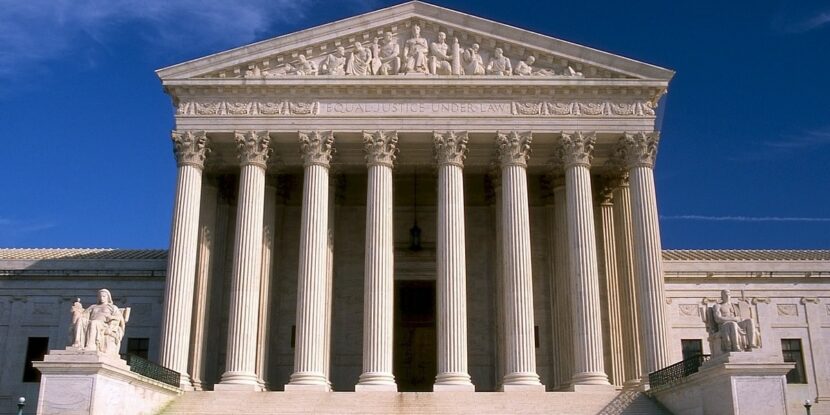Yesterday, the Supreme Court heard oral arguments for Masterpiece Cakeshop v. Colorado Civil Rights Commission. This case has enormous religious liberty implications nationwide. You may remember that Jack Phillips, owner of Masterpiece Cakeshop in Lakewood, Colo., refused to make a custom-made wedding cake for a same-sex couple’s wedding reception in 2012.
Even though they were able to find another baker to provide a cake, the couple filed a complaint with the Colorado Civil Rights Commission. Phillips was ordered to comply with the Colorado Anti-Discrimination Act, as well as change his company’s policies, provide cakes for same-sex weddings upon request, and provide “comprehensive staff training” regarding public accommodations discrimination. He was also ordered to submit quarterly reports for the next two years regarding steps his business has taken to come into compliance and whether it has turned away any prospective customers.
He appealed the ruling and the case has come to the Supreme Court. Reading the transcript of the oral arguments I was encouraged by several things Justice Anthony Kennedy said. Kennedy has often been the “swing vote” on 5-to-4 decisions made by the court. What he says during oral arguments can give us an indication of how he may decide the case which could tip the Court’s decision one way or another.
1. Kennedy was concerned about bias on the Commission.
Kennedy seemed concerned about a statement one of the commissioners made about groups claiming religious freedom and asked Frederick Yarger, Solicitor General of Colorado who was representing the Commission, to explain:
Kennedy: Commissioner Hess says freedom of religion used to justify discrimination is a despicable piece of rhetoric.
Did the Commission ever disavow or disapprove of that statement?
Yarger: There were no further proceedings in which the Commission disavowed or disapproved of that statement.
Kennedy: Do you disavow or disapprove of that statement?
Yarger: I would not have counseled my client to make that statement.
Kennedy: Do you now disavow or disapprove of that statement?
Yarger: I, I do, yes. Your Honor. I think I need to make clear that what the commissioner was referring to was the previous decision of the Commission, which is no matter how strongly held a belief, it is not an exception to a generally applicable anti-discrimination law.
Kennedy then followed up to ask:
Kennedy: Well, suppose we, suppose we thought there was a significant aspect of hostility to a religion in this case. Could your judgment stand?
Yarger: Your Honor, if there was evidence that the entire proceeding was begun because of an intent to single out religious people, absolutely, that would be a problem.
2. Kennedy believes the State of Colorado did not demonstrate tolerance to Phillips.
During his questioning of Yarger, Kennedy made the following remarks:
Counselor, tolerance is essential in a free society. And tolerance is most meaningful when it’s mutual.
It seems to me that the state in its position here has neither been tolerant nor respectful of Mr. Phillips’ religious beliefs.
3. This is about an event and behavior, not about identity.
Look at the exchange Justice Kennedy had with David Cole, who argued on behalf of the private respondents.
Kennedy: Well, but this whole concept of identity is a slightly — suppose he says: Look, I have nothing against against gay people. He says but I just don’t think they should have a marriage because that’s contrary to my beliefs. It’s not…
Cole: Yeah.
Kennedy: It’s not their identity; it’s what they’re doing.
Cole: Yeah.
Kennedy: I think it’s — your identity thing is just too facile.
Anti-discrimination laws focus on identity-based discrimination. The argument on behalf of Phillips is that he serves same-sex people, but he could not lend his artistic expression for a wedding event. His problem was with what they were doing, not who they are.
Justice Kennedy appears to agree with that.


